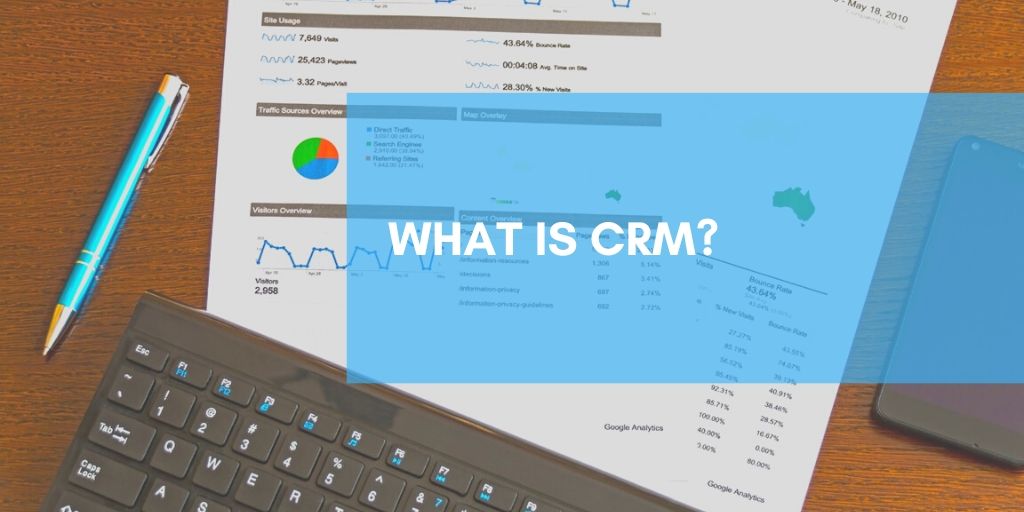Last Modified: September 22nd, 2022
5 min read
CRM stands for Customer Relationship Management (CRM). Customer Relationship Management has many definitions but the main goal is to put the customer first. It is a business strategy that focuses on managing the company’s relationship with its current customers, and new potential customers. Businesses use a system of technology to help support this strategy and these systems are often coined as CRM software.
An Overview of What is CRM
Cloud technology has allowed CRM to be readily available for small and medium businesses. Companies no longer need to invest in expensive on-site infrastructure to run a CRM system. The market is flooded with cloud-based CRM systems and businesses can easily choose which solutions best fit their business requirements and needs.
The strategic goal of CRM is centered on the development of customer-centric business culture and business processes.

What is a Cloud-based CRM Software?
A Customer Relationship Management (CRM) software allows businesses to easily manage their customer data and information to help improve the quality of customer interaction throughout the customer journey from lead, order fulfilment, and after-sales support.
Cloud-based CRM software allows businesses to store crucial customer information like lead information for potential customers, customer information of new and existing customers, service records, purchase history and other important data. These data are stored in the cloud and can be easily accessible by everyone in the company who has access from marketing, sales, customer support, accounting, and others.Cloud-based CRM also improves the accessibility and visibility of the data which can be created, edited, viewed, and modified in real-time. Real-time access to important customer data allows for better communications within the company and a seamless transition from marketing, sales, and after-sales support.
Why Cloud-Based CRM is for Small and Medium Businesses
A few years ago only enterprise-level businesses can afford CRM systems because they require significant investment in time and money. On-premise CRM solutions require a business to buy expensive computers and servers to house the data on-site. Companies are also required to hire and train specialists to operate and maintain the CRM system which can be very expensive for small businesses. The development of cloud-based technology has lead to a created the Software-as-as-Service industry which led to the availability of cloud-based CRM systems.Cloud-based CRM system significantly requires less capital to implement compared to on-premise CRM systems. Cloud-based services also allow businesses to choose what they currently need and add more features as they grow making it a very versatile and scalable solution. Cloud-based CRM solution also allows businesses to focus on their core business and leave the maintenance of the CRM software to the SaaS provider or their technology solutions provider.
Signs Your Business Needs a CRM System
Cloud Technology for Ecommerce and Online-Retail Business: Businesses need to adapt to the constant of market demand to stay ahead of the competition. Cloud solutions like cloud-based CRM help businesses improve their processes and add more value to their business. One of the challenges of small and medium businesses is deciding on the perfect time to adopt cloud-based solutions like CRM.1. Your Sales and Marketing Have Siloed Systems
One of the first signs that you see when you need a CRM system for your business is that you have different systems to cater to your potential leads and a different system for your existing customers. This creates a disconnect with your marketing and sales team. Numerous studies have shown that decreased lead time when reaching out to potential clients can increase the likelihood of the deal closing. Having different lead management systems for your marketing and sales can lead to delays in responding to a potentially warm lead.
2. Your Leads Rot Away Unattended
Another symptom that your business needs a CRM system is when leads that come in from your website is left unattended. Numerous studies have shown that at least 50% of buyers will opt for a vendor that will respond first to their inquiries and questions. Warm leads rot away if Left unattended which can be a huge lost opportunity for businesses.
3. You Are No Longer Able to Track the Activities of Sales Team
When your sales team and marketing team has grown into 5 or more people, it can be hard to track and monitor the progress of each team member which can make it difficult to plan, coordinate, and manage. Cloud-based CRM can improve communication between your sales and marketing teams making it easier to coordinate marketing campaigns and sales efforts.
4. Customer Information gets lost
Without a centralized database for data, customer information gets lost along the way. A common symptom is when your marketing and sales team repeatedly ask the same questions or information from the same customer which lead to frustrations and delays.
5. Customer Information is not readily available
Another sign that your business needs a Customer Relationship Management (CRM) system is that you and your team do not have full visibility over the information of your customers throughout the customer lifecycle.
Advantages of Having a CRM System for Your Business
Cloud-based Customer Relationship Management (CRM) systems provide a lot of benefits for businesses. CRM systems address the pain points faced by sales and marketing teams of rapidly growing small and medium businesses by providing scalable solutions like unified lead and customer management across the sales cycle, customer data management and analysis and more.1. Better Communication with your customers
Customer Relationship Management (CRM) systems allow you to better communicate with customers and manage their profile in one cloud-based platform. This allows businesses to store important customer information like customer name, email address, address and communication history with the company.
2. Easy Access to Customer Information and Data
Having a cloud-based CRM system allows you and your team to quickly access crucial customer information anytime and anywhere. This allows your team to respond faster to customer inquiries and requests improving the relationships of your customers with your business. Cloud-based CRM systems can be accessed anywhere in the world.
3. Improves Automation of Businesses Processes
A CRM system will help automate everyday tasks for your sales and marketing team improving efficiency and productivity. CRM help automate tasks like setting meetings, scheduling calls, sending automated emails.
4. Better Communication with your Sales and Marketing Teams
CRM helps bridge the gap between your sales and marketing team improving communication and efficiency. Different teams can view customer information and data in real-time allowing for faster handling of marketing-qualified leads and sales-qualified leads in your pipeline.
Implement Cloud-Based CRM with Technology Solutions Partners
Small and medium businesses are often intimidated in implementing new technology for fear of not being able to maintain the system or due to the lack of knowledge and insight on what technology to choose. Technology Solutions Partners help businesses choose the right technology for their business that best fits their needs and most importantly their budget.Serge is a Managing Partner and the head of sales and business development.
Published on: March 17, 2020
